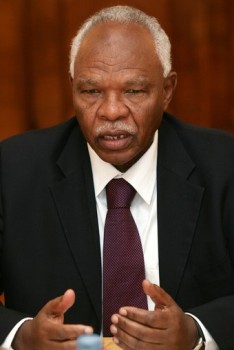Sudan’s oil production to reach 180,000 bpd by year end: minister
May 11, 2012 (KHARTOUM) – The Sudanese oil minister Awad al-Jaz on Friday revealed that his country’s production of oil will reach 180,000 barrels per day (bpd) by end of 2012.

The minister revealed that 70 oil companies including US ones have applied for the bidding in the new blocks which he said is an indication of the “big potential” Sudan has.
He stressed that they have very specific criteria in reviewing the bids including technical and financial capacity, benefits to local staff and independence of decisions from political pressures.
Currently it is mainly Chinese, Malaysian and Indian firms that operate in Sudan which produces 115,000 barrels a day.
According to Reuters, analysts have expressed doubts Sudan will make significant new finds and struggle to boost exploration unless the security situation improves.
The country’s oil production took a hit last month after South Sudan army (SPLA) briefly occupied oil-rich town of Heglig which produces half of Sudan’s crude.
Officials in Khartoum said that the SPLA deliberately inflicted damage on the oil facilities in Heglig which a lawmaker estimated to be at $3 billion.
Sudan said last week that oil production resumed in Heglig but did not reveal the amount. Experts say it is unlikely that it will reach pre-April levels anytime soon.
Al-Jaz today accused certain parties of hiding a “complex oil code” needed to resume production in Heglig which he said is a result of pressure by hostile countries. However, he claimed that national expertise managed to break the code.
Heglig is central to Sudan’s economy, which has already had to cope with the loss of oil revenues after the south seceded.
South Sudan inherited three-quarters of the oil when it gained independence from its northern neighbor last July. But Juba can only export is oil through the north’s pipelines. The two countries failed to reach an understanding on oil transit fee.
Effective earlier this year South Sudan shut down its entire oil production to stop Khartoum from taking oil to make up for what it calls unpaid fees for transit and use of its facilities.
Al-Jaz said he hopes an oil agreement can be reached with Juba but underscored that this cannot be done without resolving outstanding security issues in reference to Juba’s alleged support to northern rebels.
(ST)
